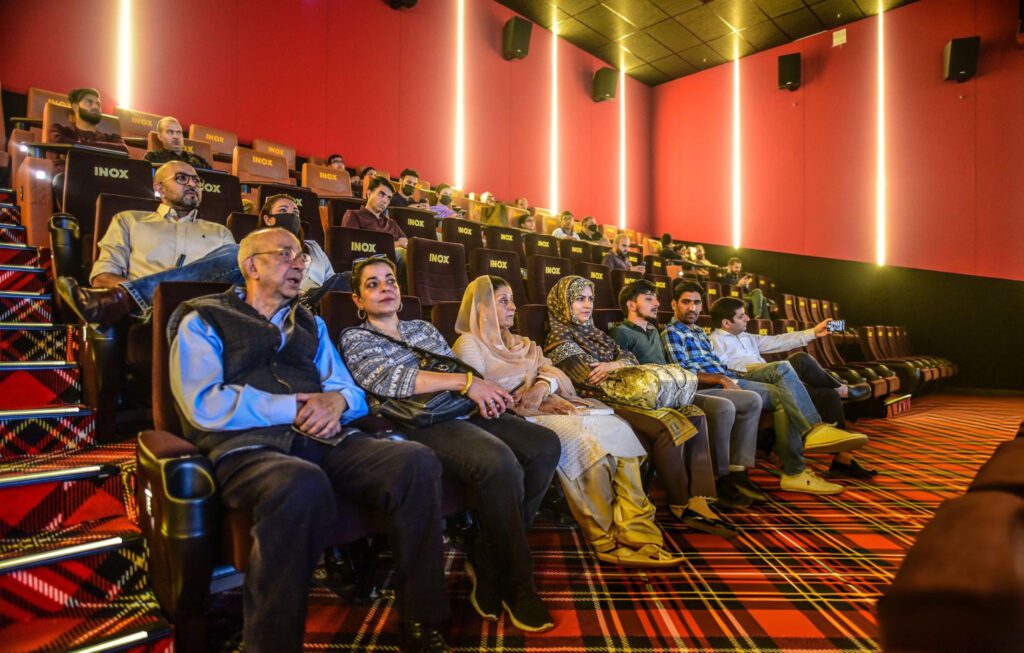
Return of Cinema in Kashmir Marred by Misogynistic Backlash
The return of cinema to Kashmir, a region long deprived of movies and entertainment, should have been a moment of joy and celebration. Instead, it has been marred by a scandalous wave of misogyny that has taken social media by storm. The screening of “Laila Majnu,” a film shot in the breathtaking landscapes of Kashmir, was screened 6 years after it’s release in Kashmir as movie theatres reopened in Kashmir after 23 years. However, the event has been overshadowed by a disturbing backlash against kashmiri women who dared to express their admiration for the film and its star cast.
During a meet-and-greet event with the star cast, women were seen hugging Avinash Tiwary, who plays Qais Bhat in the film, in a gesture of appreciation and excitement. This innocent act has ignited a firestorm of misogynistic comments on the social media platform X, where users have unleashed a torrent of slut-shaming remarks. The vitriol is not just about the hugs but also targets the women for allegedly “falling in love” with a Bihari man, exposing a deep-seated prejudice and regressive mindset of our society.
The backlash is a stark reminder of the patriarchal chains that still bind many in society. The idea that women should be shamed for publicly appreciating art and interacting with artists is not only archaic but also deeply offensive. It reveals an alarming level of control and judgment imposed on women’s choices and freedoms.
This scandal highlights the urgent need to confront and dismantle these backward ideologies. The return of cinema to Kashmir should symbolize a cultural renaissance, a time for the community to come together and celebrate artistic expression. Instead, it has become a battleground for racist remarks against men from Bihar and Uttar Pradesh followed by slutshaming women for going to cincema & pointing fingers at their character, exposing the ugly underbelly of societal norms that seek to suppress and control women.
To combat this, there must be a concerted effort to promote respect and equality. Education is key in challenging these regressive attitudes and fostering a more inclusive mindset. Public figures, leaders, activists, actors and filmmakers, have a crucial role to play in condemning misogynistic behavior and advocating for women’s rights and taking a stand against such racist remarks. We have not seen anyone clearly calling out this racist and mysoginistic behaviour faced by Kashmiri women day in and day out yet.
A rising star like Zaira Wasim had to succumb to such pressure and give up on her dreams after apologising to radical groups. If we have to move beyond this type of mindset then media , must take a stand against such toxic behavior, highlighting the importance of gender equality and the right to artistic appreciation without fear of judgment or shame. By doing so, we can hope to create a society where the return of cinema to Kashmir is celebrated for what it truly is—a beacon of hope, unity, and cultural revival.
In conclusion, while the return of cinema to Kashmir is a significant milestone, it has also exposed the deep-rooted misogyny and racism that still plagues our society. By addressing and challenging these regressive ideologies, we can ensure that the art of cinema becomes a force for positive change, empowering all members of the community to participate and celebrate without fear or prejudice.
Do not miss out on crucial updates.
Subscribe to our newletter below ↵